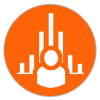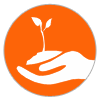
"Software is Eating the World", proclaimed Marc Andreeson, in a 2011 WSJ op-ed. Marc, a highly successful Venture Capitalist, opined then, that we are in the midst of a dramatic technological shift. Software and internet, he said, is poised to disrupt large swathes of the global economy.Companies (and participants) in every industry need to assume that a software revolution is coming.
To be sure, predicting future, particularly information technology evolution, is fraught with difficulty. In 1995, Robert Metcalfe, the inventor of Ethernet Protocol (used to network computing devices) predicted that Internet would "catastrophically collapse in 1996". After the 2008 financial crisis, the Queen of England famously asked why economists failed to foresee it. "Why did nobody notice it?" was her question at the London School of Economics.
Marc's prediction, bold though it may have sounded five years ago, by and large appears to be directionally right. To be sure, not every trail blazing disruptive company he cited has been a spectacular success. One would hardly categorize Groupon the way Marc did then - "Groupon, Living Social, ... are using software to eat the retail marketing industry".
But fast forward to today and the disruptive force of software (and Internet) that Marc prophesized appears to be in full swing.
Companies less than a few years old are redefining how we live and how businesses operate. Uber, Airbnb, Lyft have created lucrative peer-to-peer collaborative consumption model. WeWork is enabling co-working by providing physical and virtual communities. Kickstarter has raised more than $2 billion circumventing traditional investment sources. Billions of connected Internet of Things (IOT) is spawning a new class of services and applications. There is a buzz in IT industry akin to the early days of Internet - but one founded on solidfundamentals.
You must be wondering what all of this has to do with Advancement -- Annual & Planned Giving, Major Gifts Program, Alumni Relations, Student Enrollment, Placement, College Dropout and other issues.
Well, for a start it is one of the most exciting times to be working in Advancement. You have at your disposal a whole slew of tools, technologies, and solutions - Predictive Analytics, Crowd Funding, Cloud Services, Omni-channel Marketing, Automated Marketing, Mobile Engagement – waiting to be harnessed.
And what's more these technologies and tools are highly affordable. Marc, sites, in his WSJ article, commoditization of application hosting service. Within a decade, he observed the cost had shrunk from $150,000 to less than $1,500 a month. That commoditization appears to have accelerated in the last five years. Software and Internet technologies are rapidly coming down the cost curve. (If you are paying exorbitant sums of money for IT products it's time to consider another vendor). Opensource, competition, and better development tools are driving down costs.
Finally software tools and technologies are getting easier to use. Almost anyone can now learn, within a few hours, how to launch a Facebook or a Linkedin marketing campaign. Software user interfaces are now more intuitive than ever before. Marketing automation tools like SalesForce.com's Pardot now can be "programmed" with a simple drag-n-drop interface.
Bottom line - you now have at your disposal a plethora of affordable, easy-to-use, innovative technologies and solutions waiting to be tapped into. In this blog we will cover these themes" innovation, affordability, ease-of-use - as they apply to advancement and marketing.
Let's consider as an example the commoditization and democratization underway in Predictive Analytics.

Insight brings the power of predictive analytics (sometimes called machine learning or data mining) to fundraising.

Acquire is a multi-channel, integrated communication platform designed to increase contact rates.

Cultivate improves donor retention with personalized communication that speaks to donor's interests & motivation for giving.